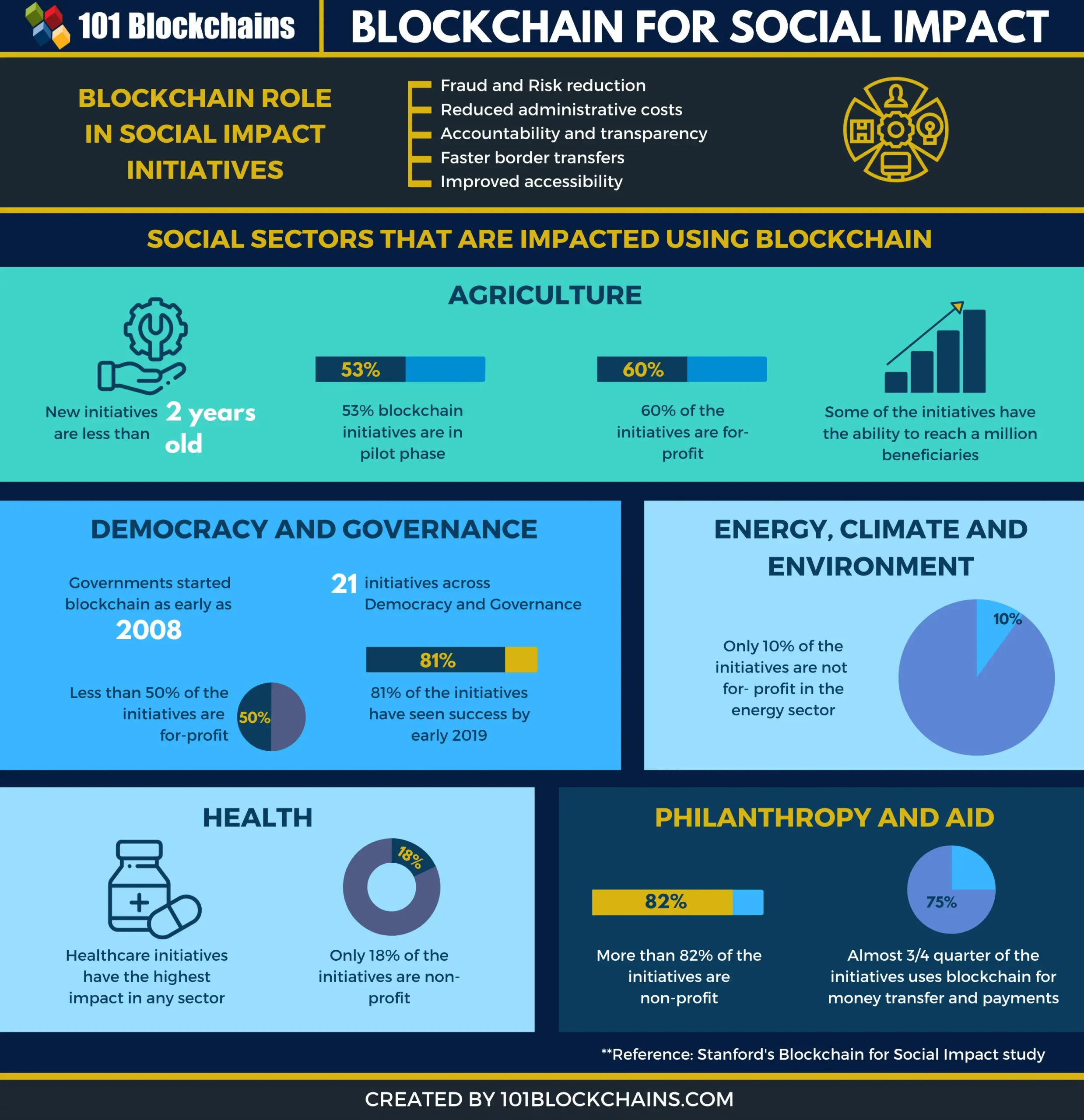Blockchain technology is essentially a decentralized, transparent, and immutable ledger that can be used to store information and transactions. Its unique characteristics make it an ideal solution for many social impact initiatives, including:
Improving supply chain transparency
Increasing financial inclusion
Providing secure and accessible digital identity
Enhancing voting systems
Facilitating charitable donations
Improving healthcare data management
Real-World Use Cases of Blockchain for Social Impact
UN World Food Programme’s Building Blocks
BitPesa’s Payment Solutions in Africa
BanQu’s Financial Identity Platform
Democracy Earth’s Liquid Democracy
Alice.si’s Charitable Donations Platform
Challenges and Limitations of Blockchain for Social Impact
Limited access to technology
High costs and complexity of implementation
Regulatory challenges
Trust and adoption issues
Conclusion:
In conclusion, blockchain technology has the potential to make a significant impact on society, from increasing financial inclusion to improving healthcare. While there are challenges and limitations to its adoption, it is clear that blockchain has already been used in several real-world social impact initiatives with positive results. As technology continues to advance and more people gain access to it, we can expect to see even more innovative uses of blockchain to create a better world.



